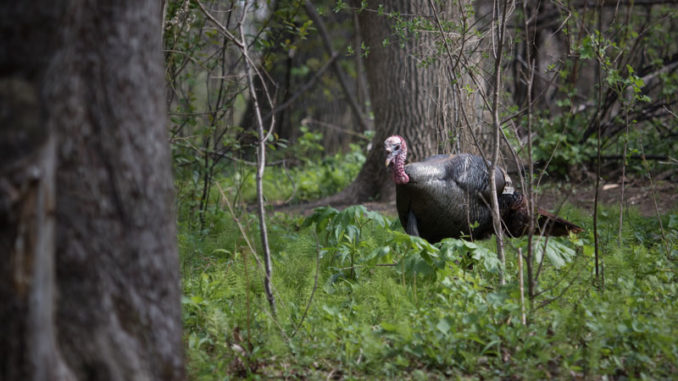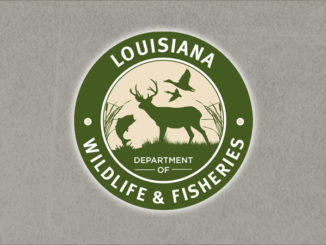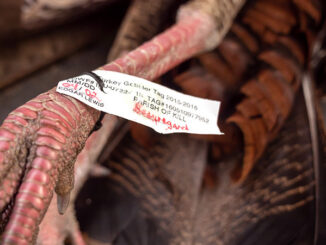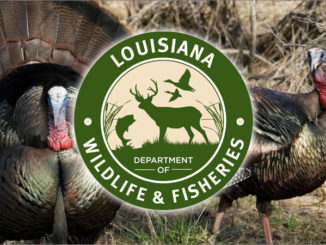
The 2023 turkey season has been closed for Sherburne and Richard K. Yancey Wildlife Management Areas.
Louisiana Wildlife and Fisheries Commission members unanimously passed a Declaration of Emergency Closing for the 2023 turkey season for the WMAs at their monthly meeting January 5. Commissioners also passed a Notice of Intent to possibly close the 2024 turkey season for the WMAs as well.
Drastic step
Cody Cedotal, Louisiana Department of Wildlife and Fisheries (LDWF) program manager, recommended the closure due to the lackluster turkey population in the two WMAs. Sherburne WMA is located near the Atchafalaya Basin and Richard K. Yancey WMA is located near the Mississippi River.
“We’ve waited this long to take this drastic step,” Cedotal said. “We looked at it and agreed the best path is to go ahead and declare a declaration of emergency and go ahead and shut those seasons down for 2023.”
Cedotal blamed the turkey population drop to multiple years of wet habitats.
“These are hardwood habitats which can be very, very wet at times and that has been the primarily cause of the decline (in turkeys),” he said.
April, May and June rainfall has been heavy the last several years. The three months represents primarily a period for nesting for the birds.
“What you really need is drought years for turkey populations to thrive,” Cedotal said.
For Sherburne WMA, Cedotal also pointed to the 2011 opening of Morganza Spillway which initiated the decline of the turkey population.
The “significant” decline in the turkey population for Richard K. Yancey WMA began in 2008 and went through 2012.
“We’ve taken some steps over the years to help the situation to correct itself,” Cedotal said. “We’ve pulled back on some of the days for both of these areas. We’ve also made the statewide season adjustment, but it is evident now that maybe more is needed.”
Cobia limits tightened
Additionally, commissioners passed an NOI to modify cobia daily bag limits for recreation and commercial harvest to mirror federal guidelines.
Under the possible guidelines, bag limits will be one cobia per person or two per vessel for recreational and commercial. Current bag limit is two fish per person and no vessel limits. Size limits remain unchanged at 36 inches.
“These are federal stock assessments,” Jason Adriance, LDWF marine fisheries biologist, said. “The federal stock assessment shows the need for reduction in harvest.”
Cobia are dark brown fish with a single dorsal fin. They are often mistaken for sharks or remoras (shark sucker).
According to the 2022 National Oceanic and Atmospheric Administration (NOAA) stock assessment, “the Gulf of Mexico stock is not overfished, but is subject to overfishing.”
Cobia moves throughout the Gulf of Mexico and into the waters of Mexico where some say overfishing does occur.
Other actions
Commissioners approved a NOI for rule changes in wild quadrupeds and wild bird rules and regulations for the 2024 season. Much of the changes were “clearing up very confusing language,” said Tommy Tuma, LDWF biologist director.
Commissioners could make possible amendments to the regulations in February and March. The public will have time to inspect the rule changes and statewide public meetings will be scheduled. Commissioners are scheduled to vote on the rule changes in their May meeting.
Including in the changes: the addition of handicap blinds in several WMAs; adding nights to the raccoon hunting season; and prohibiting aftermarket products to increase power on surface drive motors.
Sportsman have voiced concern that some of these users are gutting their muffler system or running aftermarket mufflers to increase power, but they don’t have the baffles in it. That makes them extremely loud and disruptive to others trying to enjoy the outdoors.


